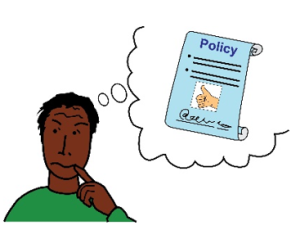As we can see from the Ladder of Involvement, there are various ways the council can interact with residents. True co-production sits at the top of this ladder, representing the highest level of collaboration. However, it's crucial to distinguish between genuine co-production and tokenistic efforts that may appear collaborative but fall short in practice.
Tokenistic co-production occurs when the less collaborative levels of involvement, such as consultation or engagement, are incorrectly portrayed as full co-production. This can happen when resident input is sought, perhaps to fulfil a reporting or statutory requirement, but not meaningfully incorporated into decision-making processes. To ensure that co-production efforts are genuine and effective, it's important to critically assess the nature of the collaboration.

"I" statements to ensure meaningful co-production
To determine if your co-production work is meaningful, ask yourself these questions:
1. Am I treated as an equal partner?
2. Do I have a say in decisions from the start?
3. Are my skills and experience valued?
4. Do I have access to all the information I need?
5. Am I supported to participate fully?
6. Is the process accessible and inclusive?
7. Are my contributions making a real difference?
8. Is there a commitment to long-term change?
The more "yes" answers you have, the closer you are to true, meaningful co-production – and the more "no" answers you get, the more tokenistic it is.
If you're unsure about something or think policies need explaining more clearly, speak up! Your experience as a local resident makes you an expert in the room.
Remember, co-production is not a tick-box exercise. It requires genuine commitment and effort from all parties to create meaningful change.